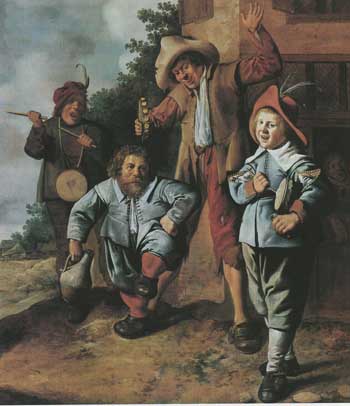Posted by Mike
I don’t like to use the term evil, because it’s more of an emotional classification than reflecting objective reality, but I’ll use it in reference to Glenn Beck  and the false and socially disruptive vitriol that he sends out over the airwaves. I always avoid listening to and watching him as well as the other radical news commentators, but decided that I would attempt to sift through some of his TV and radio clips and do a critique. Prior to that decision I watched several minutes of his show on different days this past week. In just those few minutes he was significantly distorting in his usual prim schoolmasterly manner the consequences of the current spontaneous opposition to President Mubarek of Egypt. On the first clip Beck was predicting that if Mubarek of Egypt were successfully ousted there would be a domino effect of radical Islamic revolutions all across North Africa, throughout the Asian subcontinent and on to Indonesia. On the next day he was focusing only on the Middle East, again predicting disastrous outcomes throughout the entire region should the current uprising in Egypt be successful. Towards the end of the week he showed several film clips of Mohamed ElBaradei speaking to the media in Cairo regarding the uprising. Beck focused on ElBaradei’s use of the term “social justice,” insinuating that the term masked a hidden Islamic imperialist intention and thus implying that this man who is a Nobel prize winner had concealed, nefarious motives for his courageous actions last week in Cairo.
and the false and socially disruptive vitriol that he sends out over the airwaves. I always avoid listening to and watching him as well as the other radical news commentators, but decided that I would attempt to sift through some of his TV and radio clips and do a critique. Prior to that decision I watched several minutes of his show on different days this past week. In just those few minutes he was significantly distorting in his usual prim schoolmasterly manner the consequences of the current spontaneous opposition to President Mubarek of Egypt. On the first clip Beck was predicting that if Mubarek of Egypt were successfully ousted there would be a domino effect of radical Islamic revolutions all across North Africa, throughout the Asian subcontinent and on to Indonesia. On the next day he was focusing only on the Middle East, again predicting disastrous outcomes throughout the entire region should the current uprising in Egypt be successful. Towards the end of the week he showed several film clips of Mohamed ElBaradei speaking to the media in Cairo regarding the uprising. Beck focused on ElBaradei’s use of the term “social justice,” insinuating that the term masked a hidden Islamic imperialist intention and thus implying that this man who is a Nobel prize winner had concealed, nefarious motives for his courageous actions last week in Cairo.
Glenn Beck talks to his listeners as if they are completely ignorant and dependent upon him, the expert, coming across as a not very good eighth grade civics teacher instructing his students. His use of insinuation is especially disturbing. In the example above, he does not come right out and say that Mohamed ElBaradei is a radical Islamist, but he strongly implies it, and his audience is clearly expected to “get” his implications. Socialists and communists are very bad guys in Beck’s eyes, and he is currently mixing them in with the Muslim Brotherhood “radical Islamists,” who Beck says have as a goal the establishment of an Islamic “Caliphate” throughout the world. On one of his broadcasts last week he actually tried to tie the “communist” Weatherman Underground movement of the 1960’s to the current upheavals in Egypt and elsewhere in the Middle East.
On January 31st, on his television broadcast, Beck said, “This is about world domination,” and predicted that in the future the Eastern hemisphere would consist of three powers: a Muslim Caliphate, China (which would have incorporated much of Southeast Asia, including Australia), and Russia (which would have taken over much of northeastern Europe). During his radio broadcast of February 3rd, Beck said “We’re talking about the end of the Western way of life, if we don’t pay attention.” He went on the elucidate three principal ideas that are guiding his current focus: 1. “Groups from the hard core socialist and communist left and extreme Islam will work together because they are both a common enemy of Israel and the Jew”; 2. Groups from the hard core socialist and communist left and extreme Islam will work together because they are the common enemy of Capitalism and the Western way of life”; 3. Groups from the hard core socialist and communist left and extreme Islam will work together because they are both ostracized from power and the mainstream in most of the world.” All of these assertions are complete nonsense, assertions that would not be supported by any expert in international affairs.
I assume the notions Glenn Beck puts out on the radio and television airwaves are influencing a great many people in the United States. He distorts facts. He makes insinuations that are clearly not supported by facts, which should be questioned by anyone who has even a modest command of history and who follows the news in the print media. He supports divisiveness within the nation, based upon false information. He creates fear in his listeners, fear of the other person who might be different in physical make-up, language and speech, in dress, in customs, in religion. He is a fearmonger, who encourages a fearful, xenophobic, isolationist and embattled world view in his listeners, an affront to the American flag.
America will never be destroyed from the outside. If we falter and lose our freedoms, it will be because we destroyed ourselves. – Abraham Lincoln






